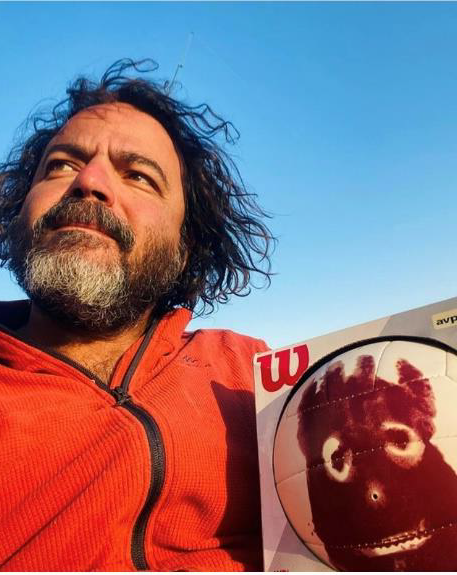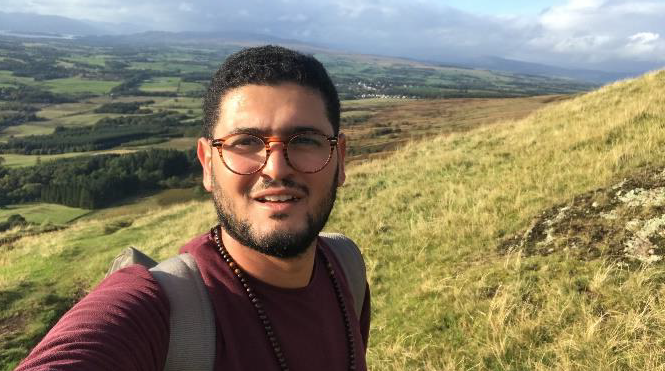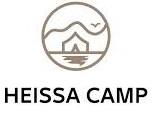Who Are We?

Hashim Morsy (Founder) I am an avid bird watcher and a professional nature photographer; I grew up around migratory birds’ routes in my hometown in Port Said and so was my passion for the ability of birds to be everywhere without caring so much about borders or boundaries. I appreciate nature and the culture of indigenous people.
Nader Gebril (Co-founder) I am a wildlife and conservation veterinarian with great appreciation for ecosystem health and services, and I believe that local communities and indigenous people are the true stewards of their natural world and wildlife around them, I am currently following a postgraduate degree in conservation biology to help more with national and global problems concerning land use and resources exploitation.

Our Story
On a Friday afternoon in Cairo, 2018. On a gathering for birdwatchers, we met for the first time and instantly became good friends, fast forward few days and over many lengthy phone calls, we have settled on the idea of spreading the awareness on birds and how important they are to the ecosystem they land in, on that note we booked two tickets to Aswan to go and meet our future Nubian partners. Heissa being in the Aswan reservoir, which is an Important Biodiversity Area (IBA Criteria met: A1) declared by Birdlife International and through their national partner Nature Conservation of Egypt (NCE), It felt only reasonable to choose the beautiful island to be the hub for birders and nature lovers from around Egypt.
Our Initiatives
Nature-based Solutions
• It is always a problem bringing building materials to the island, and it is even a bigger problem to do something that is completely odd with them. Especially For an island that ages back to the 7th dynasty and with a great history of Nubian architecture, we sought to mimic the old ways and look no further than building Nubian-styled mud huts with a modern riff, yet we kept it simple and with the help of the skilled local workers, the job was done!
• The beauty of mud huts is not only for show, but also comes very practical in a dry climate such as Aswan, the thermal regulation of the porous mud makes it very sustainable to live in them without the need for air cooling or heating technology.
• We purposefully used mud to be in unison with the terrain, we want the fauna to feel safe around the cryptic background without messing with the inhabitant predator/prey relationship.
Giving back to the island local Community initiatives.
• Our staff is employed form Heissa island and all year-round even in off-seasons.
• Keeping an authentic Nubian cuisine led by the island finest female chefs.
• We outsource our Fetti/Kagi (Nubian breads) from neighbouring families to engage more in the local economy.
• Summer school for Nubian kids to better their English language, thus finding a better paying jobs in the tourism sector.
• The camp holds traditional music parties and dances to keep the musical heritage alive and give residencies to local artists to express their art and music.
Nature Conservation efforts
• We managed to conduct the very first ecotourism-styled trip -and many more followed- in Lake Nubia with local community guides that were used mostly in trophy hunting (birds and crocodiles) trips, thus creating an alternative resource of income and lowering the hunting pressure on birds’ communities and crocodile population.
• Through the help of local scientist and ecologists such as (Amr Elhady, Haitham Ibrahim, Mohamed Ezzat) building capacity trainings to Nubian tourism guides to better their understanding on ecology and birdwatching to further better their skills and affect their livelihoods in a positive way.
• Held the second (100 bird photographs/ 100 bird photographers) exhibition to educate the people more on nature around them to help them to appreciate ecosystem through the beautiful 100 photographs, and it can be found throughout the year for visitors to enjoy.
• As we believe that nature can be enjoyed in the simplest of ways, we do social events and conduct session to introduce people to the history and the natural heritage where birdwatching and kayaking take place to approach wildlife in the least disturbing way.
Our future
Since the date palm trees are a fundamental part of the Nubian identity, and the use of those trees is prevalent in the Nubian culture and based on the concept of “Loss and Damage” we aim to plant a 1,000 date palm trees on Heissa Island in near future, as the ancestral Nubian lands of palm date trees were inundated due to building of the dams.
